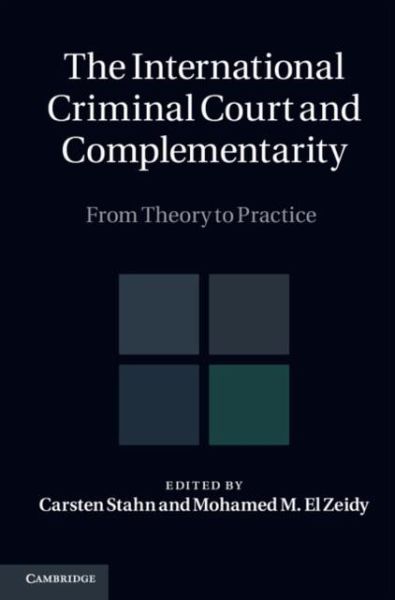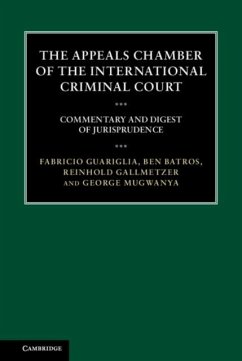
International Criminal Court and Complementarity (eBook, PDF)
From Theory to Practice
Redaktion: Stahn, Carsten

PAYBACK Punkte
161 °P sammeln!
This systematic, contextual and practice-oriented account of complementarity explores the background and historical expectations associated with complementarity, its interpretation in prosecutorial policy and judicial practice, its context (ad hoc tribunals, universal jurisdiction, R2P) and its impact in specific situations (Colombia, Congo, Uganda, Central African Republic, Sudan and Kenya). Written by leading experts from inside and outside the Court and scholars from multiple disciplines, the essays combine theoretical inquiry with policy recommendations and the first-hand experience of pra...
This systematic, contextual and practice-oriented account of complementarity explores the background and historical expectations associated with complementarity, its interpretation in prosecutorial policy and judicial practice, its context (ad hoc tribunals, universal jurisdiction, R2P) and its impact in specific situations (Colombia, Congo, Uganda, Central African Republic, Sudan and Kenya). Written by leading experts from inside and outside the Court and scholars from multiple disciplines, the essays combine theoretical inquiry with policy recommendations and the first-hand experience of practitioners. It is geared towards academics, lawyers and policy-makers who deal with the impact and application of international criminal justice and its interplay with peace and security, transitional justice and international relations.
Dieser Download kann aus rechtlichen Gründen nur mit Rechnungsadresse in A, B, BG, CY, CZ, D, DK, EW, E, FIN, F, GR, HR, H, IRL, I, LT, L, LR, M, NL, PL, P, R, S, SLO, SK ausgeliefert werden.













